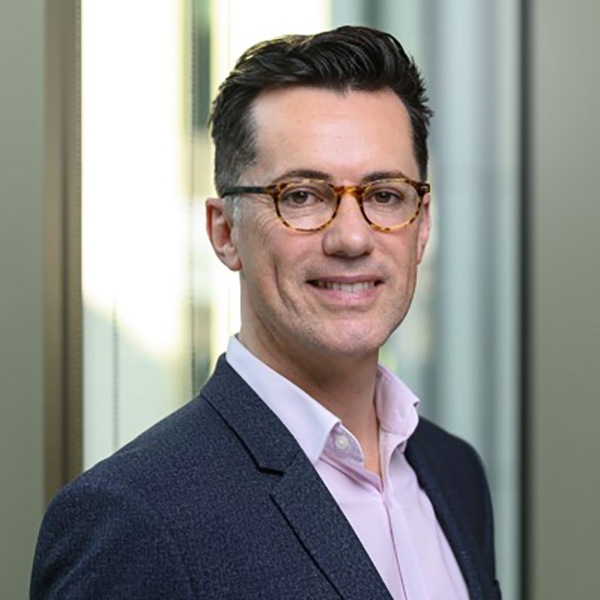The UK’s Worker Protection Act came into force last October; now is the time for all employers to act.
It’s a big question to ask and one that I can probably answer for you. The truth is that most of us are not very comfortable talking about suicide. Despite the leaps and bounds we’ve made in recent years through conversations around mental health and mental ill health in the workplace, suicide remains one of the last great taboos.
The numbers are staggering. Globally, we are seeing more than 700,000 lives lost to suicide each year. The most recent figures we have for England show that there were 4,912 suicides registered in 2020. This is 404 fewer than in 2019. Some might argue we were more connected in 2020. As the pandemic took hold, we were told to stay at home but do check-in on each other. Keep talking. Stay connected.
The power of conversation is not to be underestimated. I’ve been delivering mental health awareness training for several years now, and throughout each session I continually remind learners about the importance of conversation. The impact you can have when holding a space for somebody else is massively undervalued.
This past Saturday, 10 September, was World Suicide Prevention Day. It comes around once a year, to remind us that suicide is never far away. But also, to act as a reminder that suicide is one of the most preventable deaths and we each have our part to play in making this a reality. World Suicide Prevention Day is about raising consciousness around suicide, both globally and individually.
The theme this year is ‘Creating Hope Through Action’. What actions can we take to create hope, in a time when there might be no hope left at all? The simple answer is, we can talk, and we can listen. We can hold a space open for somebody, allowing them to step in. And then listen. We listen to their story. We share some of the burden. We hear about their pain. And then we begin to explore. Exploring other options. Reminding them that this too shall pass. We shine a light into the darkness and from here, hope can begin to grow.
When you talk about this you give someone permission to speak about their deepest, darkest secret, you’re letting them know that you’re okay with this. That you are willing to go there with them and listen. This can be life changing for some. For others, lifesaving.
But how do we do this? Where do we even begin? And what can workplaces do to make this a reality? We begin by using language that can bring understanding. Talking about suicide openly and honestly gives space, hope and strength to others. When you create the conditions to enable people to talk about this stuff… they will. Through talking about suicide and understanding more about what suicide is, confidence levels go up and anxiety around suicide comes down.
So why do workplaces have to start thinking about this?
Workplaces are places where people connect. If someone suddenly disappears from the workplace as a result of suicide – that absence will change that workplace forever. The pain and injury a workplace experiences as a result of sudden traumatic loss, can change the entire workforce. It affects everybody. The ripple effect is felt far and wide.
The idea that “we are simply here to work. It’s none of my business what’s going on in somebody else’s life” is very outdated and so very wrong. The impact, the responsibility, the cost (as ugly as that sounds) will all land with you. The employer.
Employer's duty of care: It is an employer's duty to protect the health, safety and welfare of their employees and other people who might be affected by their work activities. Employers must do whatever is reasonably practicable to achieve this.
When we talk about suicide prevention, really, what we’re talking about is intervention. Intervening with care. Intervening with someone else’s life could in fact, save that life.
- Noticing something
- Checking in
- Are you okay?
- #AskTwice
Would a day of learning about suicide give me enough confidence? Maybe. It’s a tall ask. But “maybe” is enough if it saves one life. And it’s certainly a good starting point. And from here we can begin to change. And we see change all the time. It’s happening right now across multiple sectors. If we look to banking and finance, processes are softening, policies are changing. The gambling industry is being forced to talk about suicide. Construction, one of the biggest industries affected by suicide is having to create strategies that reflect all of this.
Here at byrne·dean we can support you on your journey. We offer two comprehensive Suicide First Aid (SFA) training courses both half-day and full day. SFA training can be life changing. If this is something you’d like to explore further, please contact mark.ogrady@byrnedean.com or dial 020 3695 0474.
If you or anyone you know might be affected by suicide in any way, please contact the following support services:
Samaritans – 116 123
CALM – 0800 58 58 58
Papyrus – 0800 068 41 41
SOBS – 0300 111 5065
September 10 was World Suicide Prevention Day. We are proud to donate 2.5% of our Mental Health related income to the Samaritans: https://www.samaritans.org/
Related Articles

Sexual harassment at work: what’s changing in 2026?

Creating psychological and challenger safety: a practical guide






